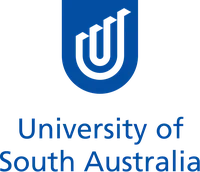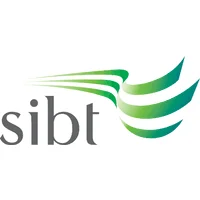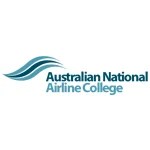Have you always wanted to feel what its like to fly a plane? Do you sometimes catch yourself wanting to be part of a diverse team managing airline operations?
If these questions pop up whenever you are thinking of what to pursue in your degree, then maybe you should start exploring the exciting world of aviation!
Take a look at some of the facts we have compiled for you right here:
- What is Aviation about?
- What subjects will I be studying?
- What are the important skills do I need in this field?
- How long will I be studying in this programme?
- What are the entry requirements and qualifications?
- How much are the average tuition fees?
- What are the job opportunities in Aviation?
- What are the top universities in Australia offering Aviation courses according to world rankings?
What is Aviation about?
Aviation is a broad term that covers many field areas of the industry. In a simpler term, studying aviation means you acquire technical knowledge and hands-on experience to fly or operate an aircraft. However, aviation is not merely limited to air travel. It also includes other important areas that are involved such as managing the operation that goes around flying planes.
You can go from learning to becoming a commercial airline pilot, designing or maintaining aeroplanes, to managing traffic control. A growing number of Australian universities are also attempting to diversify students’ prospects in aviation by proving not only aviation training but also degrees in other scientific or business-related areas.
What subjects will I be studying?
There are a number of exciting subjects awaiting you in an aviation course. You would also be surprised how school subjects that you have taken such as physics, business and mathematics can be super handy once you are in university undertaking an aviation course.
Each subject is designed to put you directly into the aviation career of your choice and help you feel familiar with the industry before applying for your first job in the future!
- Aviation Management
- Flight Operations Management
- Avionics Engineering
- Aerospace Administration
- Aviation Computer Science
- Meteorology
The curriculum that makes an aviation course effective can be challenging for many students as they are highly technical in nature. However, they will also help to broaden your career perspectives.
What are the important skills I need in this field?
Just like any other job in the working industry, employers have certain expectations that they want to see from their employees. In the topic of aviation, these expectations take the form of professional skills you need to have readily on your sleeves. Together, they make you stand out from the sea of potential candidates and become advantageously more relevant to your future job!
Here are just a few skills and characteristics employers are on the lookout during interviews:
Good communication skills - Almost all aviation jobs require you to have good communication skills one way or another. It’s not only important to verbally convey your ideas to your colleagues and employers but to also have a reliable set of written skills as well. Not only that, according to many aviation employers, critical listening skills are just as important too!
Strong teamwork skills - Working together affects the overall aviation operation to run smoothly. To become a good team player, you need to learn to be cooperative, patient, align your goals to that of others in the team and most importantly, work hard on making all that effort totally worth it!
Good people skills - Demonstrating satisfactory customer service is absolutely crucial for any job roles in aviation. Whether you are working as a pilot or flight attendant, you are expected to make customers feel at ease by fulfilling their wants, needs and other expectations of your job performance.
Sharp critical thinking skills - Whether you’re dreaming of becoming a pilot operating an aircraft or the engineer and mechanic working behind the scenes, there will always be problems needing to be solved. Working in aviation, you need to be prepared with the skills to recognise and solve them efficiently.
Reliable time management skills - Employees who prioritize time and efficiency can avoid the company from losing valuable resources and unnecessary costs. Besides that, compromising the company image can also be avoided as passengers are satisfied with service reliability provided by the staff.
Possess a positive attitude - If you have a positive attitude towards working conditions in the aviation sector, you can create a more productive space for yourself and colleagues and in turn, help you work with a clearer mind especially when problems related to your job that come your way.
How long will I be studying in this programme?
There are many courses that are related to the field of aviation. For each programme, the study duration differs from one another. Below is the general outlook of the study duration you can expect from this programme.
| Study Levels | Duration |
| Certificate | 1 year |
| Diploma | 40 weeks - 1 year |
| Bachelor’s Degree | 3 - 4 years |
| Master’s Degree, PhD | 2 - 4 years |
What are the entry requirements and qualifications?
To be eligible for a course in aviation, you need to be able to tick off the general entry requirements that are set by the institution. Most Australian aviation schools would prefer students who have taken and passed Mathematics, English, and Physics. In regards to the language requirement, students must pass at least one of the standardized English literacy exam such as IELTS, TOEFL, and others. If you have prior coursework or certification from recognized institutions, it would prove to be a huge bonus for you to get accepted by an Australian institution of your choice.
However, keep a careful note that some of these prerequisites can be different from one institution to another. Some institutions may have additional requirements that you need to research on.
In the meantime, take a look at some of the details we have compiled for you:
| Level of Studies | Requirements |
| Diploma |
|
| Bachelor’s Degree |
|
| Master’s Degree |
|
The average tuition fees in Australian institutions depends on the level of degree programme of your choice as well as what type of student you are. In this case, the cost of being an international student on Australian land vary from those of domestic students.
Take a look at the table below of the estimation of tuition fees for aviation courses in public and private universities and colleges in Australia. This is based on annual tuition fee on the latest available data. Of course, the fees can change in the future depending on the situation.
| Programme | Estimated Fees (Per year) |
| Certificate | RM29,900 - RM49,900 |
| Diploma | RM49,400 - RM65,320 |
| Bachelor’s Degree | RM59,800 - RM62,300 |
| Master’s/PhD Degree | RM82,800 - RM91,700 |
What are the job opportunities in Aviation?
If you’re set to sign up and study in the area of aviation, there are many career options waiting for you in the future! Piloting, a job that requires you hitting the skies on a plane for a living is one of the most popular option. However, if you feel more comfortable having your feet planted firmly on the ground, you are more than welcome to try out jobs in the areas of engineering and mechanics, technician, aeroplane manufacturing, or even airport management and operation.
| Career | Estimated monthly income |
| Airline Pilot | RM4, 000 |
| Air Traffic Controller | RM5, 300 |
| Quality Control Personnel | RM2, 449 |
| Aerospace Engineer | RM4, 783 |
As you can see, there is plenty of aviation jobs that do not involve piloting. Airports are very hectic and heavily bustling places and need many hands to keep the heavy traffic of visitors in check. Therefore, there is more than just flying in the aviation industry. Other equally important job roles such as the flight crew, aerospace engineers and mechanics, operation agents and many more which airlines rely on to keep business going.
Not only that, being an employee for the aviation industry means that you are most likely to be eligible to some of the benefits and bonuses provided. Some of these incentives are hard to come by in other job sectors. For example, employee parking, discounted airfare for employee and immediate family members, sick pay, basic life insurance and others. You can expect additional benefits depending on your position as well.
What are the top universities in Australia offering Aviation courses according to world rankings?
Below is a list of Australia’s greatest universities that have received recognition on a world level by the recent QS World Global Ranking publication. They were each ranked based on six indicators which include reputation among academics, graduate employability, and research impact.
The best part is that out of the 37 top Australian universities in the 2019 edition, a quarter offers aviation courses from different study qualification levels!
1. University of New South Wales (UNSW)

According to the latest rankings, the University of New South Wales (UNSW) is the top-ranked institution that provides prospective students with aviation degree courses as well as flight training. Not only that, students at the School of Aviation or UNSW Aviation are also encouraged to indulge in research in the study field as well.
Programme(s) included:
- Bachelor of Aviation (Flying) (estimated fee: RM136,133/year)
- Bachelor of Aviation (Management) (estimated fee: RM96,600/year)
- Bachelor of Commerce / Bachelor of Aviation (Management) (estimated fee: RM131,117/year)
2. University of South Australia (UniSA)
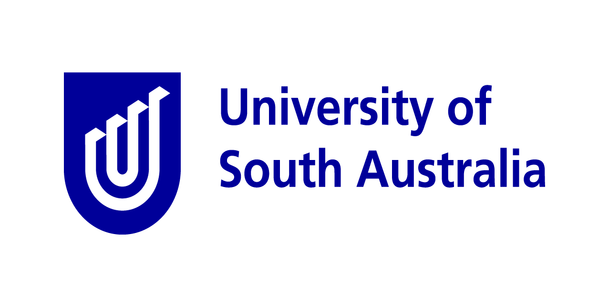
At the University of South Australia (UniSA), they take pride in keeping a record of being the only university in the state for providing aviation programmes as a tertiary qualification for its students. Depending on the following courses, each emphasises on either management in aviation, airline administration, or on the ground exposure involving airport and flight operations. For international students who are keen on aviation flying, flight training through private lessons can be applied.
Programme(s) included:
- Bachelor of Aviation (Management) (estimated fee: RM99,446/year)
- Bachelor of Aviation (Flight) (estimated fee: RM104,987/year)
3. Griffith University
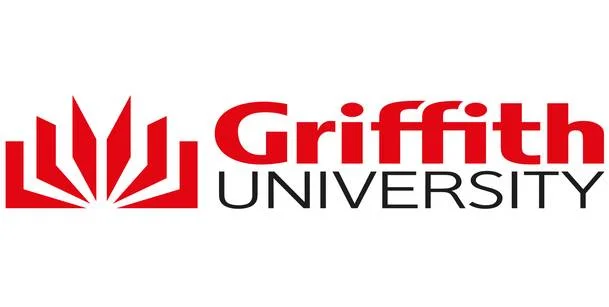
After two decades, Griffith University has built one of the most notable aviation programmes in the country. Unlike any other aviation institutions, students here are given early access to learn from pilots with many years of experience in the industry. Griffith’s close connection with the industry is crucial in ensuring that its successful graduates can become relevant to the industry today and in the future.
Programme(s) included:
- Bachelor of Aviation (estimated fee: RM91,674/year)
- Bachelor of Engineering (Honours)/Bachelor of Aviation (estimated fee: RM96,039/year)
- Bachelor of Aviation Management (estimated fee: RM91,674/year)
- Master of Aviation Management (estimated fee: RM81,488/year)
4. Swinburne University of Technology
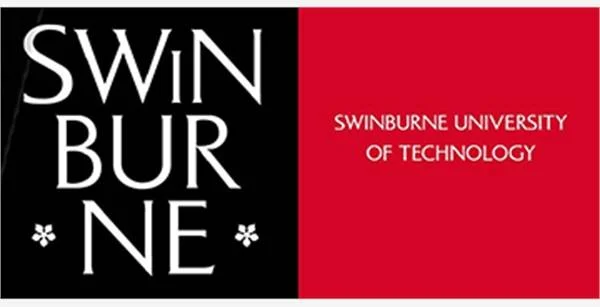
The Swinburne University of Technology provides perhaps one of the most varied choice of aviation programmes among the top ranking institutions in the country. These courses address either technology and business for students with interests in a particular study area of aviation. For example, you open to aerodynamics, aircraft mechanics and engineering, aviation business management and strategy, aviation operations, aerodynamics and many more.
Programme(s) included:
- Bachelor of Aviation Management (estimated fee: RM102,523/year)
- Bachelor of Aviation Management / Bachelor of Business (estimated fee: RM102,526/year)
- Bachelor of Aviation and Piloting (estimated fee: RM159,490/year)










